Springtown Camp: Naval base squatters reunite in Derry
- Published
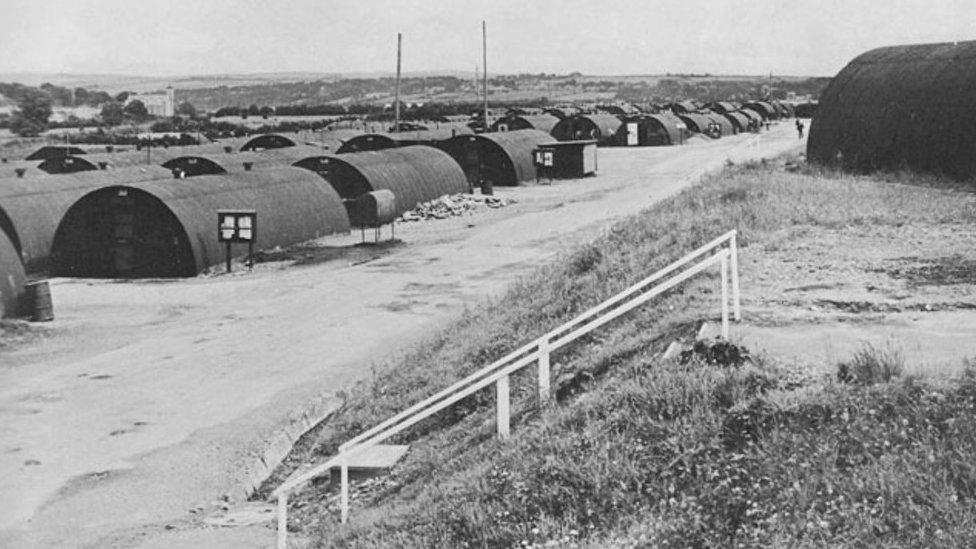
Springtown Camp with Pennyburn church in the far distance
Can you imagine living in a World War Two tin hut with 19 other people?
That's what was happening in Londonderry at a former US Navy camp in the 1940s, '50s and '60s.
The camp was heavily guarded by US Marines during the war but the Americans vacated the camp when the war ended.
People in the city could not get adequate housing so they squatted in the Springtown Camp after the navy left the area.
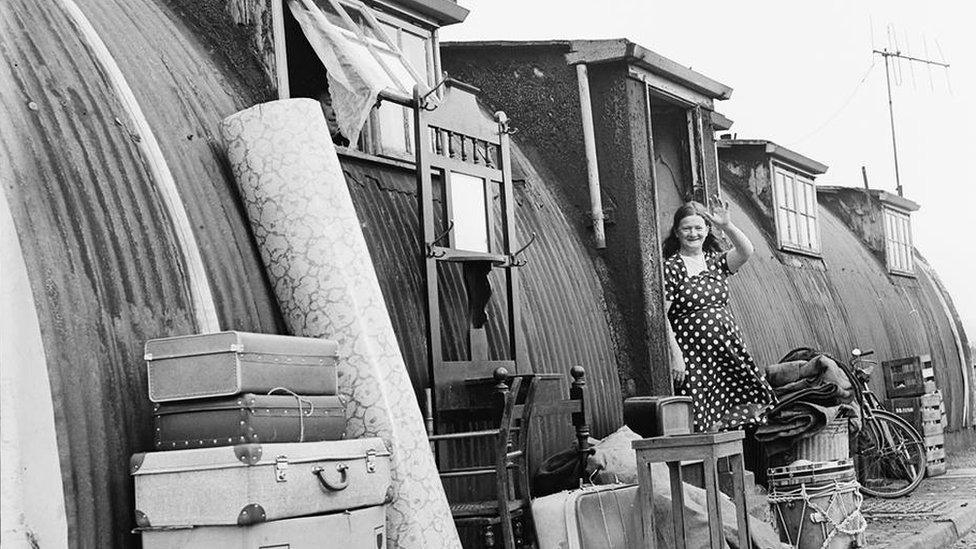
Kitty Lynch waves goodbye to the media in 1967
The site had 302 huts, a chapel, gym, laundry, canteen, barber's shop, theatre and even a jail.
But the huts had no water, electricity or heating.
'Hell on earth'
After a public outcry, the Unionist Majority Corporation, which had obtained power through gerrymandering, granted temporary rentals to the new residents and charged rent.
That agreement was to last six months and the families were to be allocated housing. But that didn't happen.
The camp closed in 1967 and some of those residents and their families are reuniting in Derry on Saturday - 50 years after the closure.
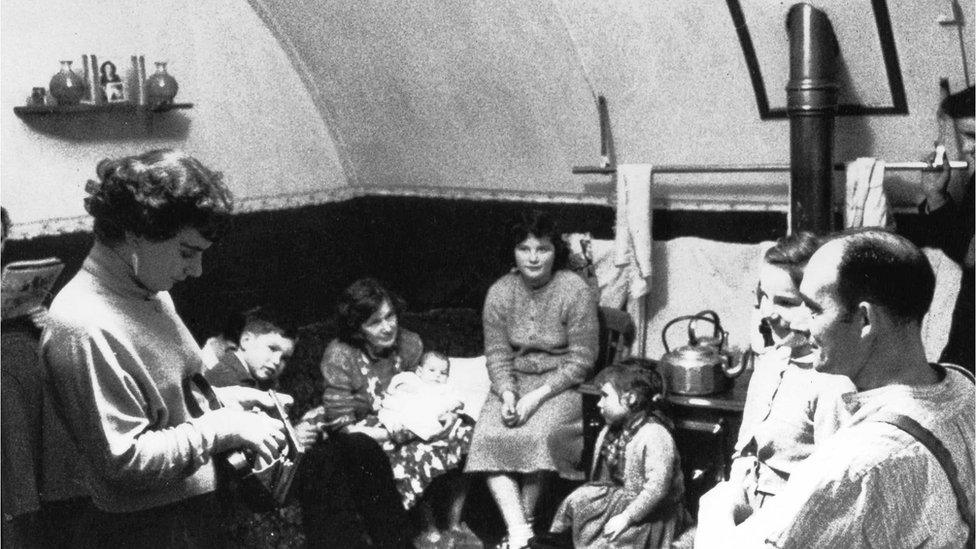
Inside Sammy Holden's hut in December 1955
Willie Deery, who lived at the camp and is one of the reunion organisers, remembers the sun shining on the tin huts.
"I was a child and we just thought it was normal," he said. "It was like a gigantic adventure park.
"But on the inside the huts were dark, cold, grim, damp, smelly - everything that you wouldn't want a home to be.
"It had a big impact on people's health. People had serious ache's, pains and chest infections. There were deaths too.
"One lady described it to me as 'hell on earth'."
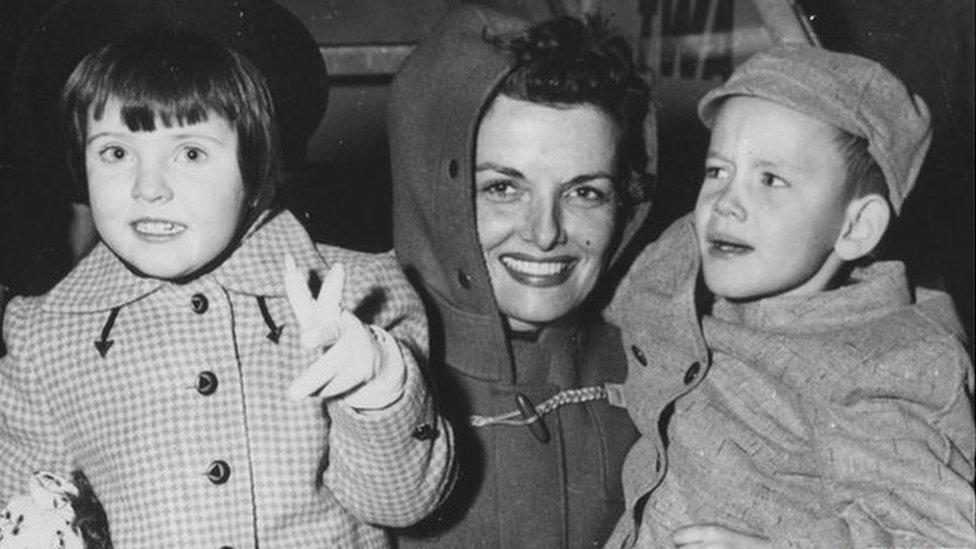
Because of her husband's Celtic connections, Jane Russell - pictured here with with daughter Tracy (left) and Thomas - wanted to adopt an Irish boy
Actress Jane Russell sparked an international furore in 1951 when she adopted a child from a mother living in poverty within the camp.
It was a move that almost ended her show business career.
Broadcaster Marie-Louise Muir met the adopted boy, Thomas, in a new BBC Radio 4 documentary as he made an emotional first visit to Derry.
Willie Deery said: "For our mothers it must have been really tough.
"The women worked themselves hard. They were the first up in the morning and last to bed at night.
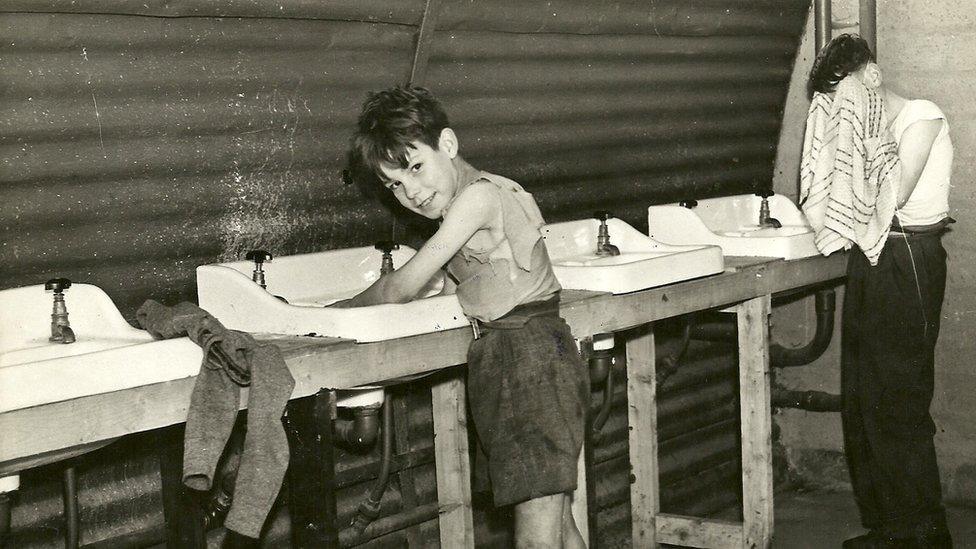
Boys washing before the huts were renovated 1946
"A dozen in a hut would have been a luxury. There were huts that held 19 people.
"It's been described as the birthplace for the civil rights campaign.
"There were fires in the camp too, because safety obviously wasn't a key priority.
"People got burned. People were in pain.
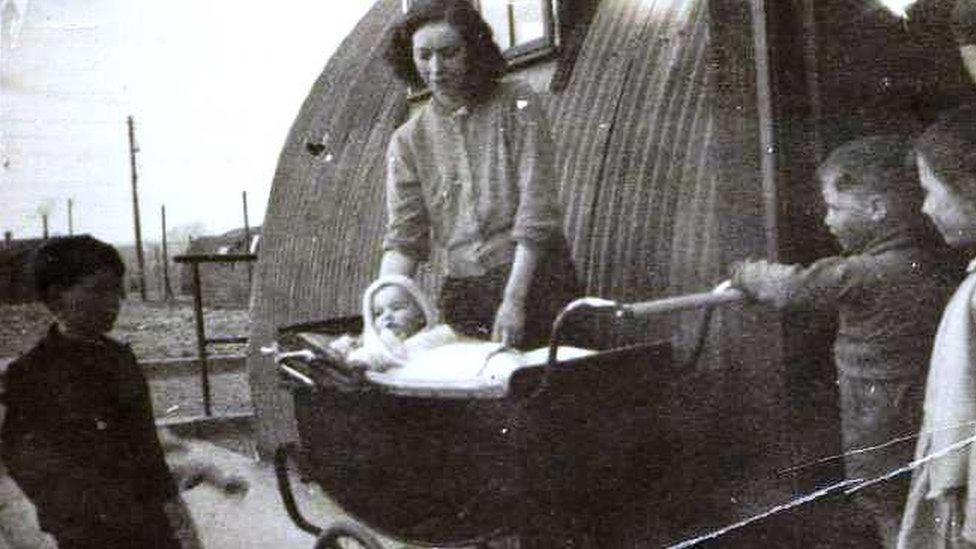
Dolly Breslin with her children at Springtown Camp in 1952
"There were no decent houses in Derry. People didn't have any hope.
"This reunion will be a great chance to meet those people again and look at old pictures and footage.
"It will be sad event too, but the camp is something the people of Derry should never forget.
"It's a big part of history here."
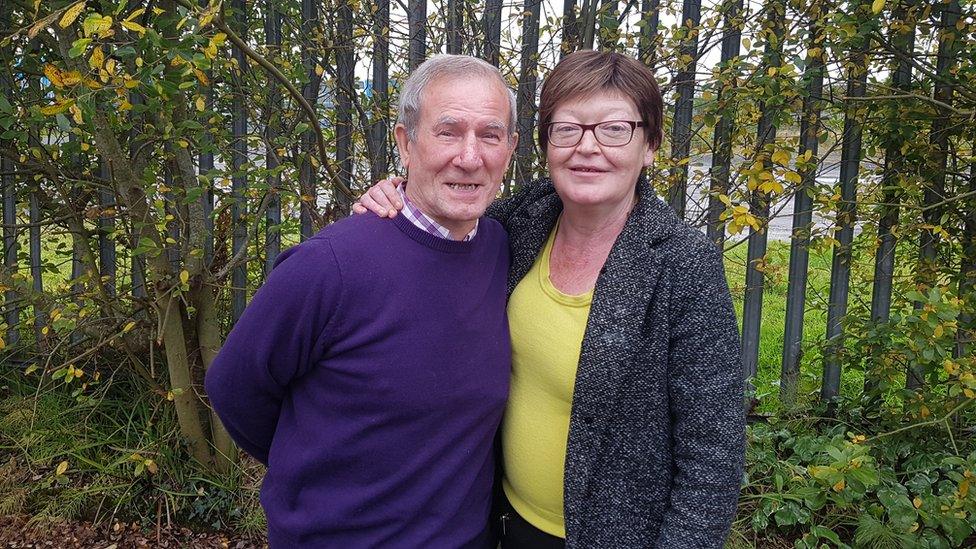
George Lynch and Patricia Moore have become friends through growing up on the camp
George Lynch moved in to Springtown Camp in 1946.
"We were the very last family to leave the site," Mr Lynch told BBC Radio Foyle.
"I remember looking back and crying," he said.
"There were tough times but in general we loved it. I remember fires breaking out and I had to help put them out.
"I became the local bingo man and we ended up in one of the wooden huts. They were more fancy than the tin ones.
"Everyone had a lot of respect for each other and that's why many of us are still friends today."
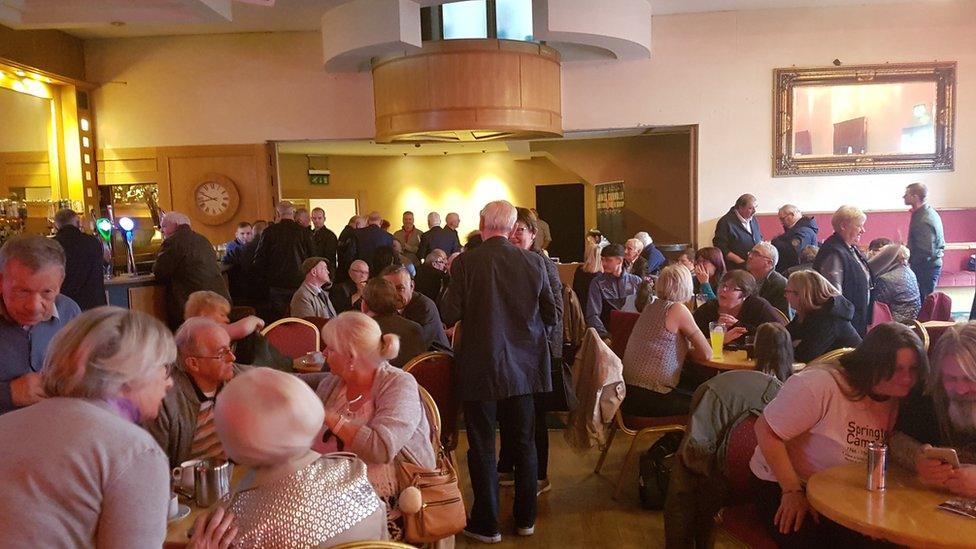
People gathered in Derry on Saturday to mark the closure of the camp 50 years ago
- Published19 March 2013
withdaughtertracyandthomas.jpg)